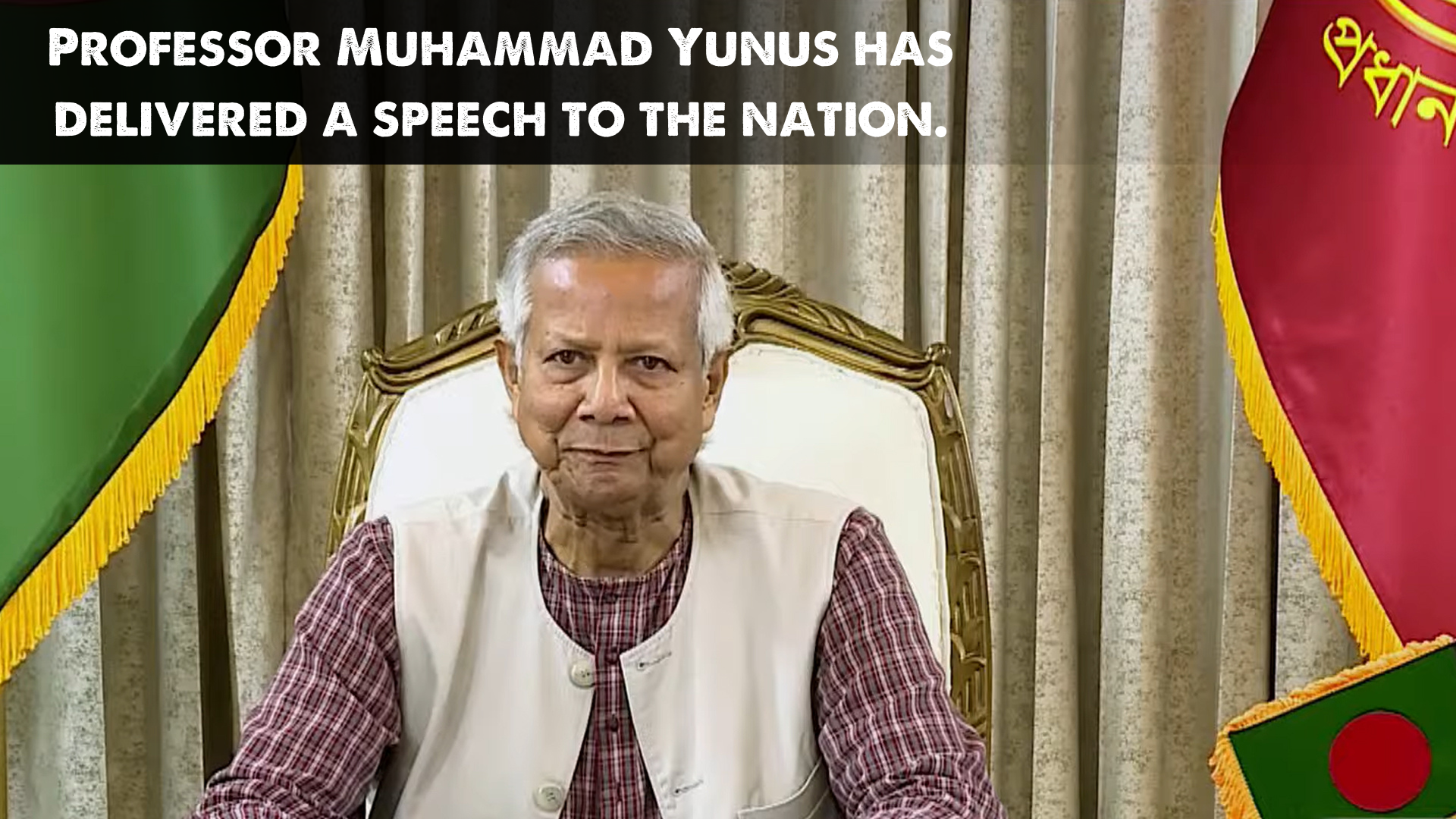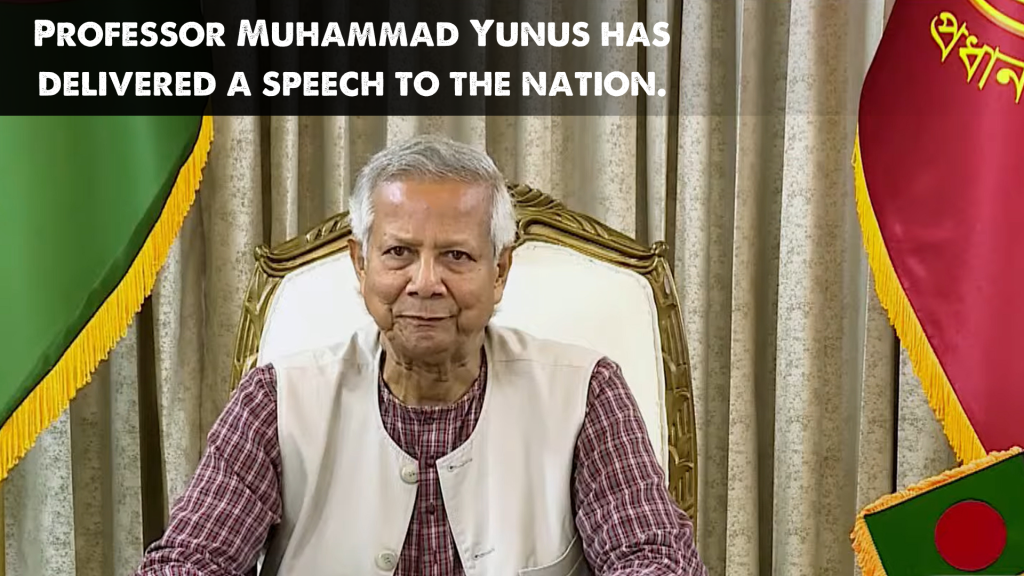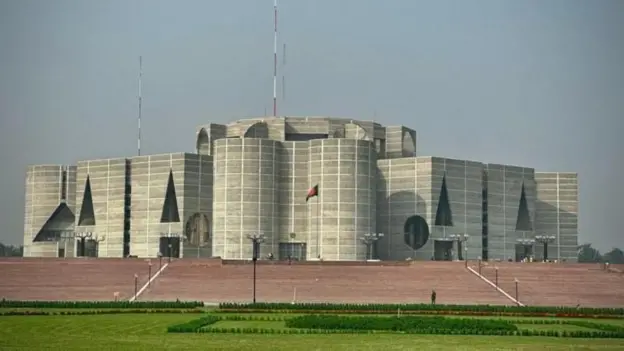At the same time, he announced that a National Consensus Commission under his leadership would begin work next month.

News today— The chief adviser has indicated the probable time for the election, and a National Consensus Commission is being formed.

News today: Professor Muhammad Yunus, the chief adviser of Bangladesh’s interim government, stated in a speech to the nation that the next national parliamentary election might be held between the end of 2025 and the beginning of 2026.
At the same time, he announced that a National Consensus Commission under his leadership would begin work next month. The commission’s primary task will be to build consensus on the critical issues necessary for holding the election.
Thank you for reading this post, don't forget to subscribe!The Chief Adviser said, “The Chief Election Commissioner and the Election Commission have already been formed. The commission has assumed responsibility. From now on, the responsibility of initiating the process for forming the future government rests with them. They have begun their preparatory work.”
He delivered this speech to the nation on Monday morning, on the occasion of Bangladesh’s Victory Day.
Mr. Yunus, for the first time since assuming office, mentioned a probable timeframe for the election. One of the country’s major political parties, the BNP, has been demanding an announcement of an election timeline from the very beginning.
On Sunday, at a party event, BNP’s acting chairman, Tarique Rahman, stated that the public has the right to know how many more months the interim government needs for its reforms.
At the same event, the party’s secretary general, Mirza Fakhrul Islam Alamgir, said, “It is imperative to pave the way for reforms through a credible election as quickly as possible. This is the most urgent need of the moment.”
However, the Chief of Army Staff, Waker-Uz-Zaman, had mentioned in an interview last September a timeframe of 18 months for the election, sparking widespread discussions in the political arena.
Although the government initially focused more on reform initiatives, a few advisors occasionally made various statements about the election timeframe. Later, they clarified that determining the timeframe is within the chief adviser’s jurisdiction, and he would make the announcement.
In his speech on Monday, the chief adviser stated that he has repeatedly appealed to complete the major reforms and proceed with the election.
“However, if, I repeat,, ‘if,’ due to political consensus, we need to hold the election with minimal reforms and by preparing an accurate voter list, the election may be possible by the end of 2025. But if we incorporate additional reforms based on the recommendations of the Election Reform Commission and on national consensus, it might require at least six more months,” he said.
From his statement, it is clear that the next national parliamentary election could take place anytime between the end of 2025 and June 2026.

“On Monday morning, the chief advisor paid tribute at the National Martyrs’ Memorial.”
“National Consensus Commission.”
On August 5th, after the fall of the Sheikh Hasina government, an interim government was sworn in on August 8th under the leadership of Professor Muhammad Yunus.
News today: The Chief Advisor had formed six commissions to carry out reforms in various sectors. In addition to this, a white paper committee was formed to review the economic situation, and they have already submitted their report.
In a speech to the nation on Monday, the chief advisor said the six reform commissions would soon submit their final reports.
“We are moving forward to establish a ‘National Consensus Formation Commission’ with the chairpersons of these six commissions. The purpose of this commission will be to identify the issues on which consensus is reached after discussions with political parties and all stakeholders and to recommend their implementation,” he said.
Mr. Yunus said he himself would be the head of the commission while Professor Ali Riaz would be the vice-chairman. The commission can co-opt new members if needed.
He hoped that the National Consensus Commission could start its work next month after getting the final reports from the six working commissions. News today—
He further explained, “The first responsibility of the new commission will be to quickly develop consensus on decisions required for elections and finalize, by talking with one and all, the date on which the elections can be held.”News today—

On August 8th, Dr. Muhammad Yunus took the oath of office as the chief advisor of the interim government.
“I am trying to reduce the prices.”
For the last , the increaseease in essential commodities has beens been the main gossip of Bangladeshi people. In spite of numerous declarations made by the government regarding several initiatives, prices of these commodities have never shownany controlling upwards graph. Even today’s speech of Chief Adviser showed the same scenario.
In his speech, Muhammad Yunus said that even though they had tried genuinely, they did not get the results they wanted over inflation control. He granted that during the last one or two months, some prices have gone upwards.
“However, I strongly feel that inflation will be brought down. We are doing something to reduce prices by increasing supplies, reducing import duties, reducing the role of middlemen, and monitoring the markets. Extortion in the transport sector has not been completely stopped. If that is tackled, prices will further go down,” he said.
He urged all to cooperate towards keeping the prices of commodities within the affordableable reach of all during the upcoming Ramadan and threatened to deal sternly with any attempt to create an artificialial crisis.
‘Trial of Autocrats and Their Accomplices’
In his speech, the chief adviser said that the trial process for the “fallen autocrat and his accomplices” is underway,, and full opportunity would be given to them to defend themselves.
“To ensure the judicial process is transparent, foreign lawyers have been permitted for the accused. They would get a fullll opportunity to place their defense. The court would allow journalists, human rights activists, and others access to attend the trial. And whosoever feels interest will be allowed to record any portion of the trial, ” he said.
He further said that he has informed Karim Khan, the prosecutor of the ICC, that he intends to file cases for crimes against humanity in the ICC against those responsible for “genocide.”

National Parliament Building of Bangladesh
‘Discipline Restored in the Banking Sector’
Professor Muhammad Yunus claimed in his speech that trust and discipline had been restored in the banking sector and that no banks were closed.
“Even the weakest banks have been kept operational. Initially, restrictions were placed on withdrawals by depositors, but those have now been lifted. Bangladesh Bank is ready to provide new funds to ensure that all banks can return depositors’ money. I believe this will restore everyone’s confidence in the banking system,” he said.
He referred to the report of the White Paper Drafting Committee headed by Dr. Debapriya Bhattacharya and mentioned that almost half of the annual development expenditure had been embezzled.
“The laundered money is your money. They have openly plundered your hard-earned wealth and spent it abroad for luxury,” he said.
“The major task for Bangladesh Bank now is to bring back the laundered money to the country. They are making every effort to do so with the utmost capacity. The task is challenging because the laws related to this are complex. We are providing Bangladesh Bank with both courage and support, repeatedly urging them to recover at least a portion of the funds during the interim government’s tenure,” he added.
‘Document of the last government’s most hated chapter’
Referring to the preliminary report of the Disappearance Commission formed by the current government, he in his speech termed it as a “horrifying document” that gave a detailed account of the extent of human brutality against one another.
“Incredible accounts. Those who, by chance, have survived the wrath of the government are still too scared to speak out. Their fear has not subsided—it was that if those oppressors ever return to power, they will face even greater brutality. This report will remain an eternal testament to the most disgraceful chapter of the past government,” he said in his address.
Incidentally, the Investigation Commission submitted the Interim Report on disappearances to the Chief Adviser Muhammad Yunus on Saturday. The “publishable sections” of the report have been handed over to the media by the chief adviser’s press wing.





Good
thanks
thanks dear